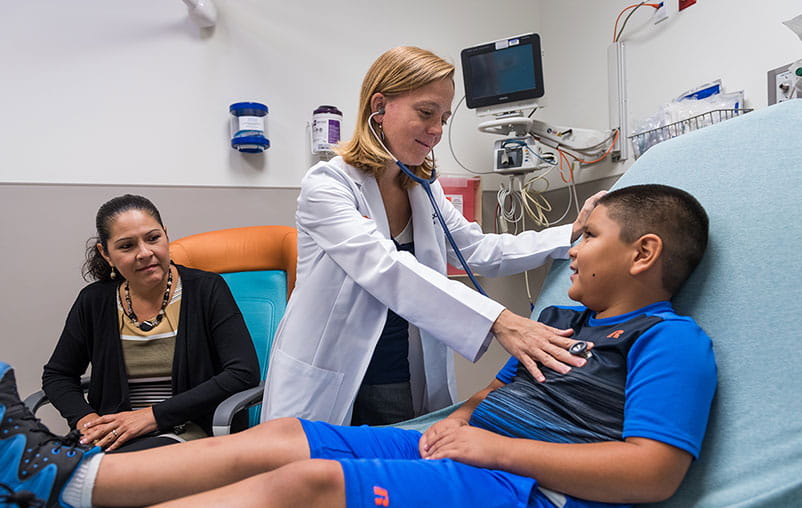When Owen Saporito came into this world in July of 2022, his parents knew the little red-headed boy would eventually need heart surgery. He was born with a large hole in the center of his heart which prevented the necessary separation of blood flowing through his lungs from blood in his body.
Before the time for surgery arrived, however, Owen caught a virus from his older brother. His weakened heart couldn't handle the strain. He was transferred to University Hospital on Dec. 1, and suffered cardiac arrest. His medical team placed him on an ECMO machine which kept him alive by removing carbon dioxide from his body and replacing it with oxygen-filled blood until he was stable enough for surgery.
Dr. Aaron Abarbanell knew heart surgery would be very difficult for Owen, but Owen needed it to survive. His outcome was more hopeful, however, because of a unique blood program University Health’s pediatric heart surgeons had developed with its Blood Services team.
Developing a Low-Titer Whole Blood Supply
Owen’s surgery would require blood transfusions. Children, especially infants, are prone to developing antibodies that can cause complications when they are given individual blood components like red blood cells or plasma from multiple donors. Dr. Abarbanell and the pediatric heart surgery team knew University Health’s trauma unit had helped develop transfusions that minimize bleeding and improve the survival of transfused patients by giving them whole blood which contains all blood components, not just some.
The pediatric surgeons wondered: Could the Blood Services team further refine whole blood so it would have even fewer harmful antigens that might threaten a young child’s recovery? Blood Services embraced the challenge.
University Health Blood Donor Services with its transfusion and laboratory teams worked with pediatric heart surgeons to formulate this unique whole blood and ensure its consistent availability.
They needed a group of volunteer blood donors who have type O positive blood without the antigens that can lead to complications in small children. Blood services set about meticulously identifying these so-called low-titer volunteers who could donate blood when children needed heart surgeries.
In 2023, 48 donors provided this special blood at University Health, sometimes with little notice, to aid the recovery of 21 children.
Have a Heart Blood Donors Program
While most blood donors rarely meet the patients they help or save, these donors had a chance to do just that on Feb. 14, 2024 – Valentine’s Day – with the first celebration of the Have a Heart Blood Donors program.
Henry Davis Jr. had been donating blood for several years when he got a call telling him his blood had special qualities that could help small children. “I didn’t hesitate to come in and donate,” Davis told others gathered at the event. “They said it was for the babies. I felt like wow, I can actually contribute. I felt special.”
The Outcomes of Low-Titer Blood and Pediatric Cardiac Surgery Patients
Scientific data is not yet available to verify the benefits of having the special whole blood available for pediatric heart surgeries, but Abarbanell and his team have observed a marked decrease in the amount of blood these children need during their surgeries. All of the children undergoing heart surgery who received whole blood seemed to become stable and recover more quickly.
“The low-titer whole blood was tremendously helpful for Owen to minimize inflammatory responses that can happen with blood product transfusions that can delay the recovery of sick cardiac children,” Dr. Abarbanell said.
University Health knows of no other program for children having heart surgeries that maintains a constant supply of low-titer type O positive whole blood for these operations. Dr. Abarbanell believes it’s a development that could help children with congenital heart conditions elsewhere.
Donate Blood at University Health
While the volunteers in the Have a Heart Blood Donors program must meet special criteria, University Health’s Blood Donor Services welcomes donors of all blood types who want to help our community maintain a strong, available blood supply.
You can schedule an appointment to give blood at DonateBloodToday.com.






